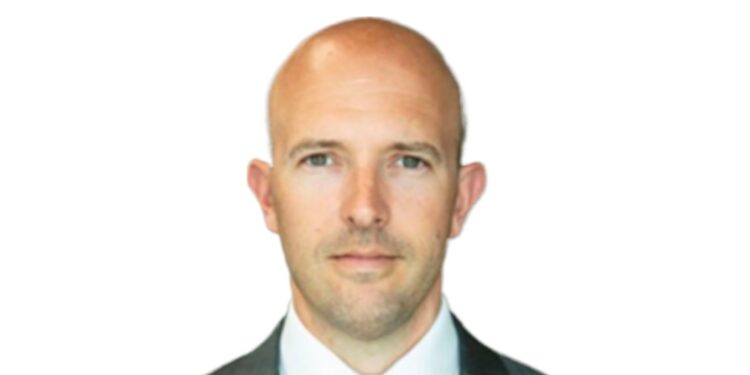Phil Jeynes, director of corporate strategy at Reassured, speaks to Health & Protection about how his biggest mental challenge since his colon cancer diagnosis has been managing the emotions of loved ones, opening up about his own experience and the importance of men getting health worries checked out.
Earlier this year, Jeynes (pictured) spoke at Health & Protection’s inaugural Protection Forum about getting the all clear following his successful operation to treat colon cancer.
A year on from suffering the first symptoms of colon cancer, Jeynes revealed that as the cancer was caught early and there was no spread of the disease, no further treatment is needed.
“I was fitted with a temporary stoma bag which was then reversed through a further operation in July and am now pretty much back to full health,” Jeynes explains.
Managing emotions of loved ones
Elaborating on his experience over the past year, Jeynes reflects that by far the biggest challenge was thinking about and managing the emotions of other people.
“From immediate family through to friends, colleagues and my employers,” he says.
“I’m used to being a problem solver and being in control of most situations; I like to plan and have everything organised. Dealing with a situation which I largely couldn’t influence and for which the outcome could be dire was alien and hard.
“My instinct was to hunker down and deal with things on my own but this was neither practical nor fair on my loved ones, so I took the opposite approach and was very open about my diagnosis and treatment. In the end I feel this was the right approach and allowed people to express their feelings too.
“I still find it hard accepting I was ill because I never really felt that way and am extremely conscious about how lucky I have been with my treatment and prognosis.”
Little choice over what’s happened
And Jeynes adds that he has felt uncomfortable when people say he has been “brave”.
“I had little choice in most of what happened and simply rolled with the punches as they landed,” he continues.
“The medical professionals who fixed me deserve all the praise for my favourable outcome and my loved ones for supporting me. I am also acutely aware of the much tougher times others continue to face in terms of cancer and they have my full empathy.
“Having said that, I’m proud that I coped as well as I did and that, by telling my story, I may have helped someone else get an early diagnosis or just feel better that they aren’t alone.
“The experience has strengthened my commitment to making the most of life and made me much more relaxed and accepting of whatever else life has to throw at me.”
Get checked out
Talking to people has also made a big difference, Jeynes says.
“Everyone’s different but I’d say talk to people – you’ll be amazed how many people have been through something similar and you would never have known. I’d also say to trust the doctors; they know what they’re doing and have your best interests at heart.”
Though Jeynes adds his experience has also taught him the importance of getting health worries checked out and for all men to do so.
“My stance on this has become really strong,” Jeynes continues.
“You owe it to yourself to be as healthy as you can be, not just for aesthetic reasons but because when you get ill, you’ll deal with the treatment and recovery so much better. If you notice anything out of the order, no matter how minor, get it checked.
“My cancer was removed because we caught it early. That same cancer would have killed me if we’d got to it later.”






